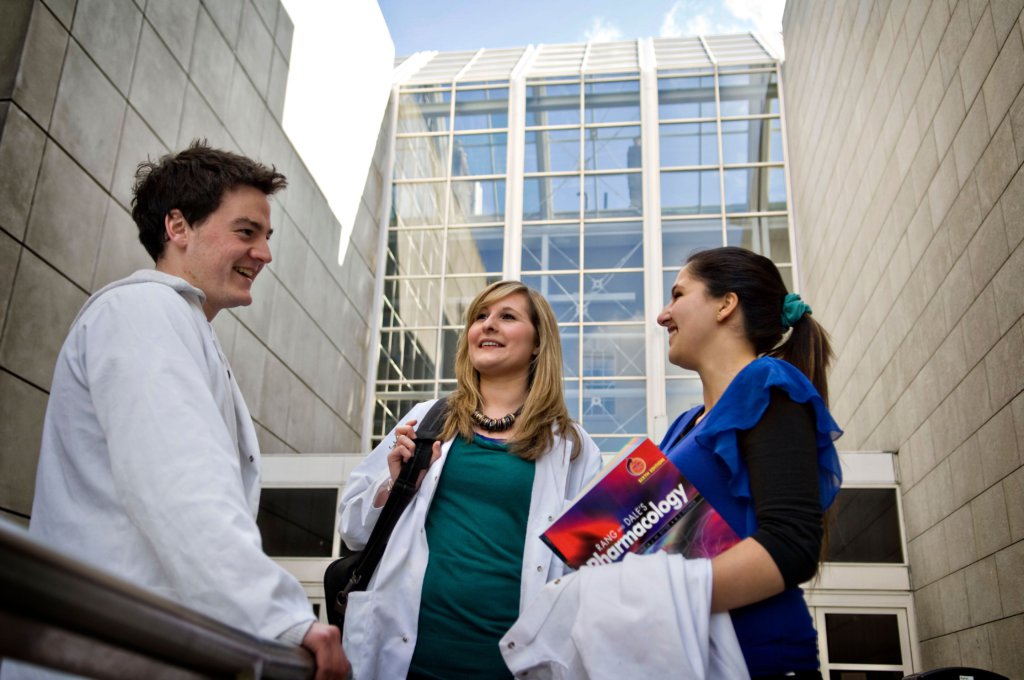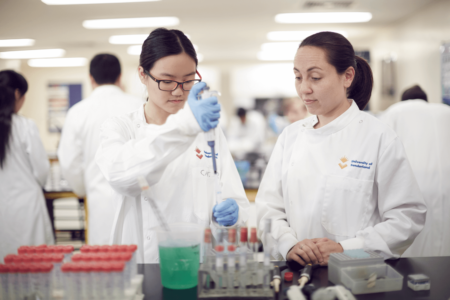
Do you know that the modern pharmaceutical industry owes its existence to apothecaries and chemical companies? Over time, the scientific fields of both pharmaceutical chemistry and pharmacology merged into today’s pharmaceutical sciences.
If you seek a career exploring scientific procedures to create new medicines or treatments for health conditions, and to ensure they are safe for human consumption, consider pharmaceutical sciences. It holds many diverse career options, spanningclinical or academic research, clinical trials, drug development, business affairs, technician or even marketing.
In the UK, salaries range from 25,000 to 100,000 pounds if you have years of experience. Those in the US can expect to take home around US$30,000 to US$100,000, depending on the job.
If you enjoy working in a challenging environment, are a team-player, and like travelling to different work locations such as laboratories, hospitals, clinics and factories, the pharmaceutical sciences industry may be the right choice for you.
Here are four European universities to launch your career in this dynamic field:
Trinity College Dublin: School of Pharmacy and Pharmaceutical Sciences

The School of Pharmacy and Pharmaceutical Sciences at Trinity College Dublin offers world-class programmes that train students for diverse careers. Source: Trinity College Dublin
Trinity College Dublin – Ireland’s leading research-intensive university – attracts high-calibre students from all over the world. With numerous industry partnerships and a strong focus on innovation, this university – considered one of the best in Europe – seeks to provide an inclusive and impactful education while respecting the many cultures of its students.
The School of Pharmacy and Pharmaceutical Sciences (SoPPS-TCD) is ranked 25th in the QS Global Rankings in 2022 for Pharmacy and Pharmacology. The school is renowned for its internationally-trained research experts and multidisciplinary training opportunities. SoPPS-TCD’s wealth of knowledge in the discovery, development and safe use of medicine has inspired a number of excellent programmes.
The School offers a modern integrated MPharm training programme with periods of experiential learning in community, hospital, industry and role emerging practice in years 4 and 5. The programme meets the training requirements to register directly as a pharmacist in Ireland. It features diverse teaching methods, with special use of small-group teaching with external experts, problem-based learning, site visits, web discussion boards, wikis, online group assignments, communication skills, career planning, clinical case studies, and inter-professional learning.
The MSc/Diploma in Pharmaceutical Sciences – the only such multidisciplinary degree offered in Ireland – sees students learning about fundamental and applied aspects of drug substance and product discovery, development, production and analysis. The programme is delivered with deep connections to top commercial and academic research groups in Europe and worldwide. Graduates can expect to have rich research careers in academia and industry in pharmaceutical R&D.
Uppsala University

Uppsala University’s list of alumni include 15 Nobel Prize laureates, of which more than half received their prizes for discoveries made during their time at Uppsala University. Source: Uppsala University
Founded 1477, Uppsala University is the first Nordic university. Today, it is ranked among the best in the world. It is home to nine faculties, 50,000 students, close to 5,000 researchers, and approximately 60 departments and similar units.
The university is on a mission to conduct education and research of the highest quality and relevance to make a long-term difference in society. Here, curious and committed students and staff seek to advance sustainable development, engage with the wider community, and promote openness and respect.
In recent years, Uppsala University has been ranked among the top 100 universities in the world by the three big international rankings lists: Times Higher Education (THE), QS World University Rankings and ARWU (Shanghai Ranking).
The Department of Pharmacy offers several courses at the undergraduate and advanced levels in the fields of Pharmaceutics, Social Pharmacy, Pharmacoepidemiologi, Pharmacotherapy and Pharmacokinetics/dynamics.
The two-year Master’s programme in Biopharmaceuticals explores the entire life cycle of biopharmaceuticals, from design to production, testing and usage. Students will get to analyse innovative therapies such as novel vaccines, immunotherapies, gene and cell therapy are examples of strategies used in a growing field of academic research and the biotech industry. They will learn about different types of biologics as well as how the design and production of biological drugs differs from small molecular drugs.
Universidad Católica San Antonio de Murcia

Universidad Católica San Antonio de Murcia is home to great facilities, including a simulation room for pharmacy students. Source: Universidad Católica San Antonio de Murcia
There are many reasons why students from all over the world choose to study pharmacy at the Universidad Católica San Antonio de Murcia (UCAM). The Bachelor’s Degree in Pharmacy is taught in English, starts practical classes from the first year, has a simulation room on campus, provides direct access to PhD programmes and includes Spanish Language courses.
This multidisciplinary programme reponds to society’s demands and it is well integrated into the public health system. UCAM students will gain work experience in the university’s laboratories from the first academic year, as well as in pharmacies, companies and hospitals.
“This is a very complete degree,” says Roque Roldán, a Bachelor’s Degree in Pharmacy student. “It has a theoretical part and a very large practical part. We develop it in UCAM laboratories, and we have also visited other laboratories and have done practice in hospitals”.
After completing this five-year programme, you will gain the official qualification required for professional practice. Many employment opportunities are set to open up to you. You can work in different areas like pharmacies, in the pharmaceutical industry, and in related areas such as pharmaceutical marketing, research, public or private health management, and teaching.
Masaryk University

Masaryk University has been creating a smarter world since 1919. Source: Masaryk University
One of the most acclaimed universities in central Europe, Masaryk University is located in Brno, Czech Republic, a welcoming city characteristic for its safety and student-friendly atmosphere. LIttle wonder that over 7,000 international students currently chose it as their second home.
The university is one of the most prestigious and respected higher education institutions in Central Europe. It is the second largest university in the Czech Republic as well. Its 10 faculties offer 400 study programmes, many of which are multidisciplinary and allow students to specialise, experiment and discover new challenges.
If you seek to meet the current level of pharmaceutical sciences, the needs of practice and to progress into doctoral study, its master’s study programme in Pharmacy is an ideal option. The five-year programme allows students to speciliase and adapt modules according to their areas of interest.
The programme includes two compulsory practical training: a two-week internship in a pharmacy during their third year of study and another compulsory six-month internship during their last Students apply theoretical knowledge gained during the previous studies in the real environment of pharmacy practice.
*Some of the institutions featured in this article are commercial partners of Study International










